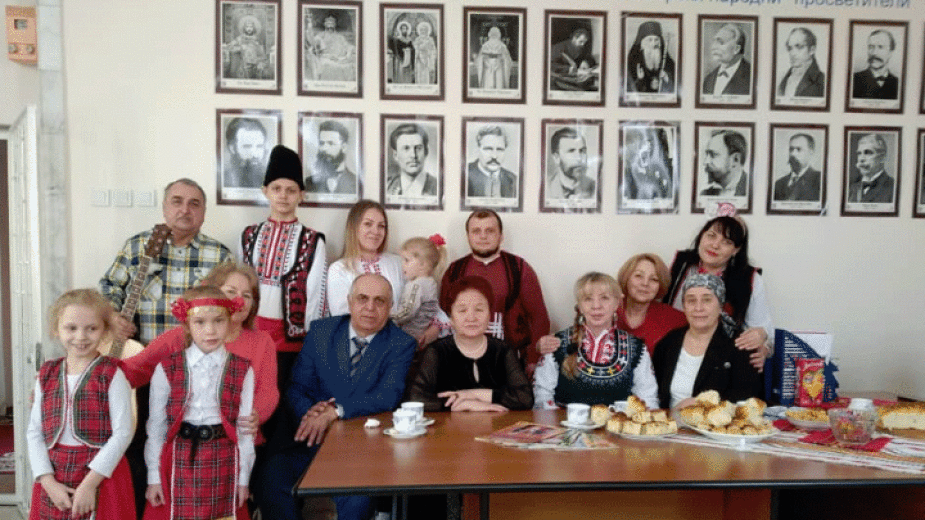 4
4
Kyrgyzstan, located in the Tian Shan Mountains in Central Asia, is little known in Bulgaria. Except, perhaps, with Lenin peak and the peak of Khan-Tengry located on the border between Kyrgyzstan and Kazakhstan, climbed by Bulgarian alpine climbers. And yet one of the pearls scattered around the world from the necklace of the Bulgarian people can be found there.
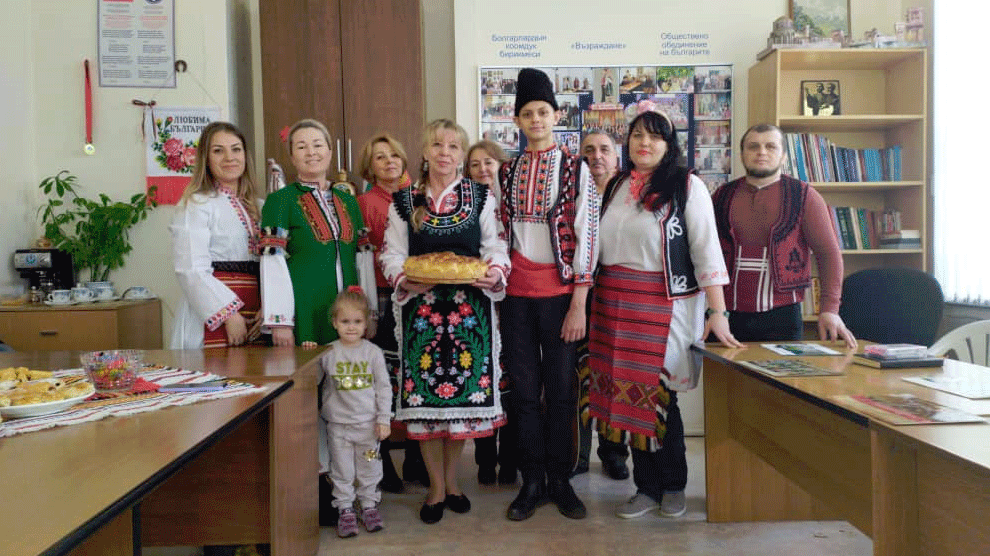 "The Bulgarian diaspora in Kyrgyzstan is small but extremely united." This is what Andrey Ryzhkov wrote in his comment on the Facebook page of the Russian-language section of Radio Bulgaria. He himself is an ethnic Bulgarian and is keenly interested in everything related to Bulgaria. "That's why I follow the publications of Radio Bulgaria - they offer varied and useful information about the country," said Andrei.
"The Bulgarian diaspora in Kyrgyzstan is small but extremely united." This is what Andrey Ryzhkov wrote in his comment on the Facebook page of the Russian-language section of Radio Bulgaria. He himself is an ethnic Bulgarian and is keenly interested in everything related to Bulgaria. "That's why I follow the publications of Radio Bulgaria - they offer varied and useful information about the country," said Andrei.
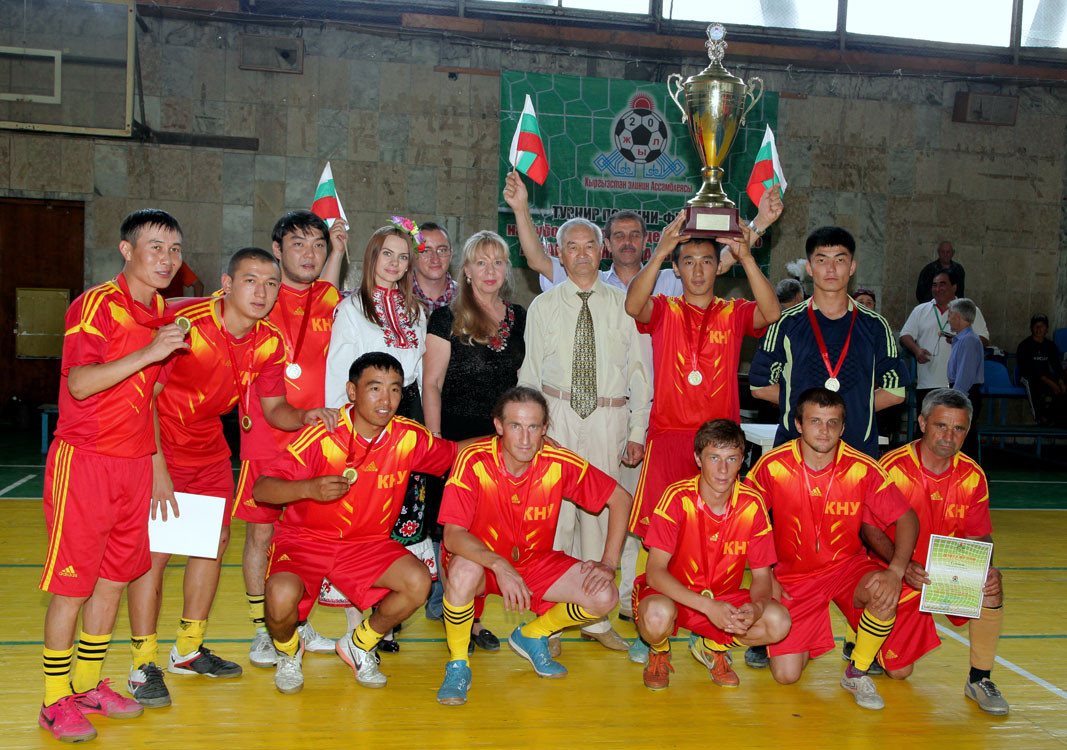 About 500 ethnic Bulgarians live in Kyrgyzstan as they are concentrated mainly in the villages of Maevka and Leninskoye. "Bulgarians in Kyrgyzstan are good and hard-working people and are successful in their jobs," says Andrey, citing the country's celebrated classical wrestling coach Petar Yaloma, whom everyone respects and loves.
About 500 ethnic Bulgarians live in Kyrgyzstan as they are concentrated mainly in the villages of Maevka and Leninskoye. "Bulgarians in Kyrgyzstan are good and hard-working people and are successful in their jobs," says Andrey, citing the country's celebrated classical wrestling coach Petar Yaloma, whom everyone respects and loves.
Kyrgyz Bulgarians keep in touch with each other, gather for Bulgarian holidays such as Baba Marta, March 3rd, the Day of Slavic Writing. They bake “banitsa” (traditional Bulgarian pie) according to their grandmothers' recipes. For example, they often make “zelnik” (pie with cabbage), but different from the one we prepare in Bulgaria - with cream and eggs. They drink tea, “rakiya” (plum brandy) brought from Bulgaria, and sing Bulgarian songs.
"There are family clans in Leninskoye that still observe Bulgarian traditions, they speak Bulgarian. But, unfortunately, they are few," says Larisa Tashmatova. She is the director of the local union of Bulgarians and represents the Bulgarian diaspora in the Assembly of the People of Kyrgyzstan. The union is called “Vazrazhdane” (revival) because its main goal is to revive the Bulgarian spirit. There the local Bulgarians study Bulgarian traditions, folk dances, language and history. "We represent Bulgaria at various events in Kyrgyzstan. We do exhibitions and festivals. There are very few Bulgarians here. Many people do not even know that we exist. Thanks to our activities they learn about us ", Larisa Tashmatova shares with excitement.
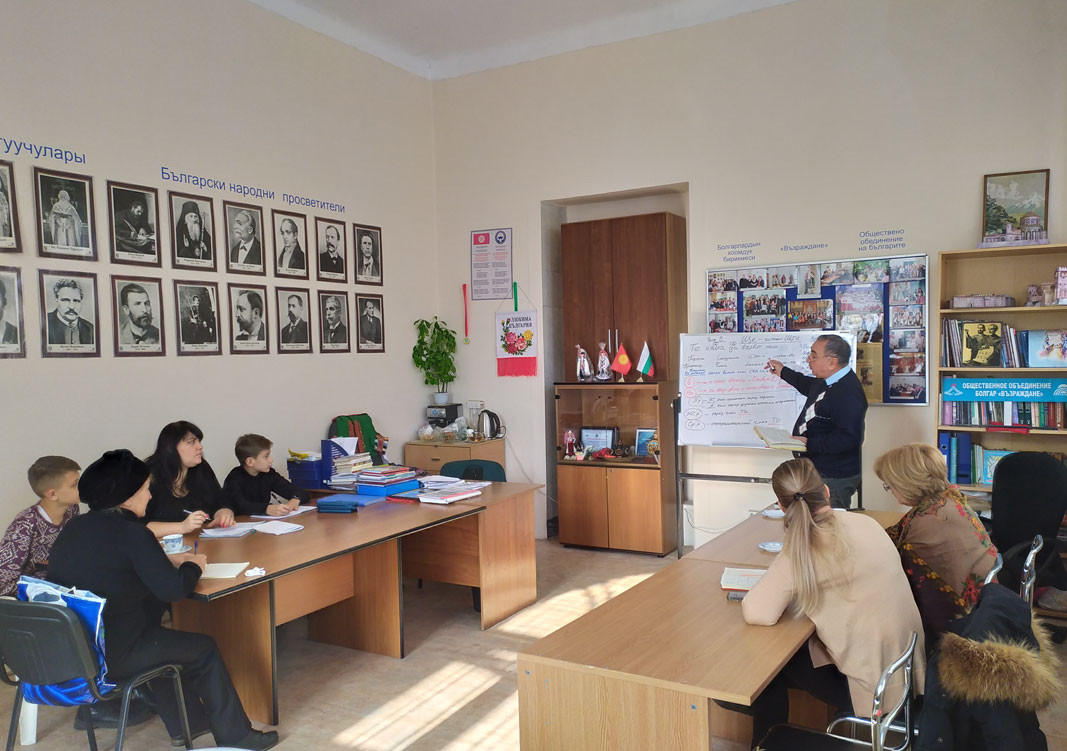 Bulgarians settled in Kyrgyzstan in several emigration waves, the first of which was in the time of the Ottoman Empire - the middle of the 18th century, says Larisa Tashmatova. The second and larger wave was in 1908-1912. It covered settlers from Bessarabia and Crimea, driven by the agrarian reform of Pyotr Stolypin.
Bulgarians settled in Kyrgyzstan in several emigration waves, the first of which was in the time of the Ottoman Empire - the middle of the 18th century, says Larisa Tashmatova. The second and larger wave was in 1908-1912. It covered settlers from Bessarabia and Crimea, driven by the agrarian reform of Pyotr Stolypin.
The stories of the settlers are as colorful as life. The family history of our reader Andrey Ryzhkov is also filled with many vicissitudes. His mother was born on the Crimean peninsula, but was the heiress of a family from Bulgaria’s town of Veliko Tarnovo.
"During the Russo-Turkish War of 1877-1878, the Turks, enraged after the loss of the battle of Pleven, began to terrorize the Bulgarian population. In search of salvation, our ancestors crossed to the other side of the Danube River. Russian Emperor Alexander II allowed them to settle in Bessarabia and Crimea. On the Crimean peninsula, they created Zhelyabovka - a rich village where Bulgarians grew grapes and other crops. My mother was born there. There was a school there with training in Bulgarian, which my mother graduated from, " says Andrey.
Andrey was born in Tajikistan, and his profession as a flight engineer at TU154 took him to Kyrgyzstan. In 2013 he and his wife left for Burgas in Bulgaria, where they bought a house. "This is how not only my personal dream, but the dream of my whole family came true. Mom must also be happy with us from heaven," says Andrey Ryzhkov.
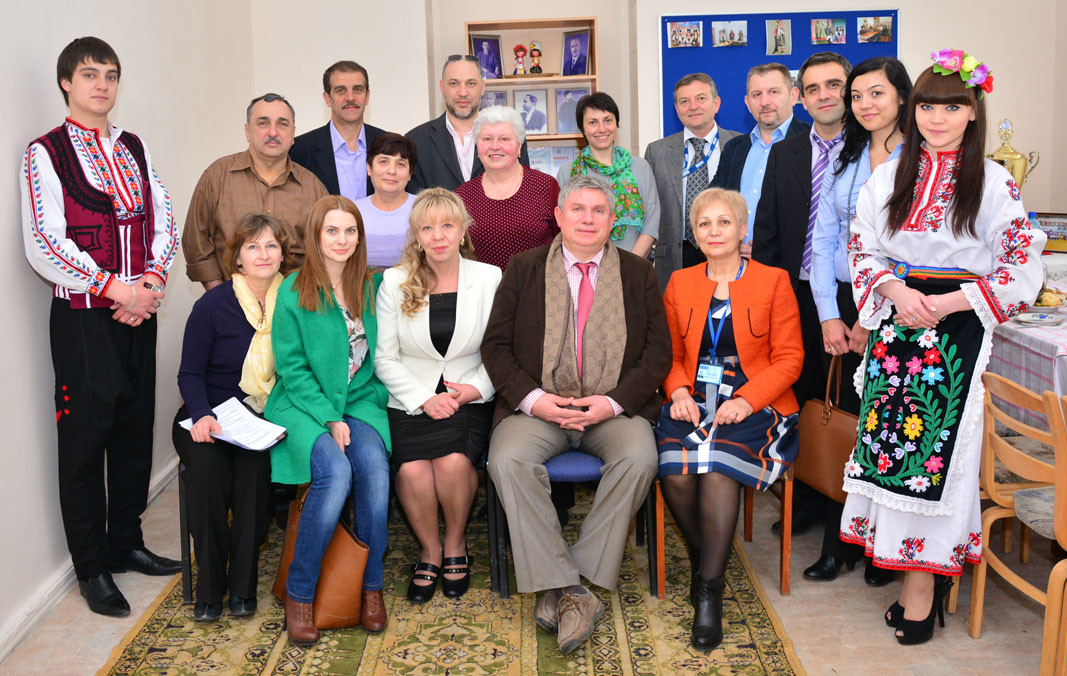 English Rossitsa Petcova
English Rossitsa Petcova
The 33rd Bulgarian polar expedition is heading to Antarctica to continue its scientific research in cooperation with scientists from different countries. For the first time, travelers from two Balkan countries - Greece and Montenegro, as well as from..
The program of the Orthodox Book Week offers meetings with authors, publishers and translators of Orthodox books from the last few years. The event is held until November 10 at the ''St. Procopius of Varna'' Church, with meetings taking place every..
The "Kabiyuk" horse breeding farm in the village of Konyovets is the oldest stud farm in Bulgaria, founded in 1864 by Midhat Pasha, the governor of the vilayet of Ruse, to produce horses for the Turkish army. The farm existed until the Russo-Turkish War..
For the 30th consecutive year, the Bulgarian Posts organize a contest for the most beautiful letter to Santa Claus. Letters must be sent by 18..

+359 2 9336 661
